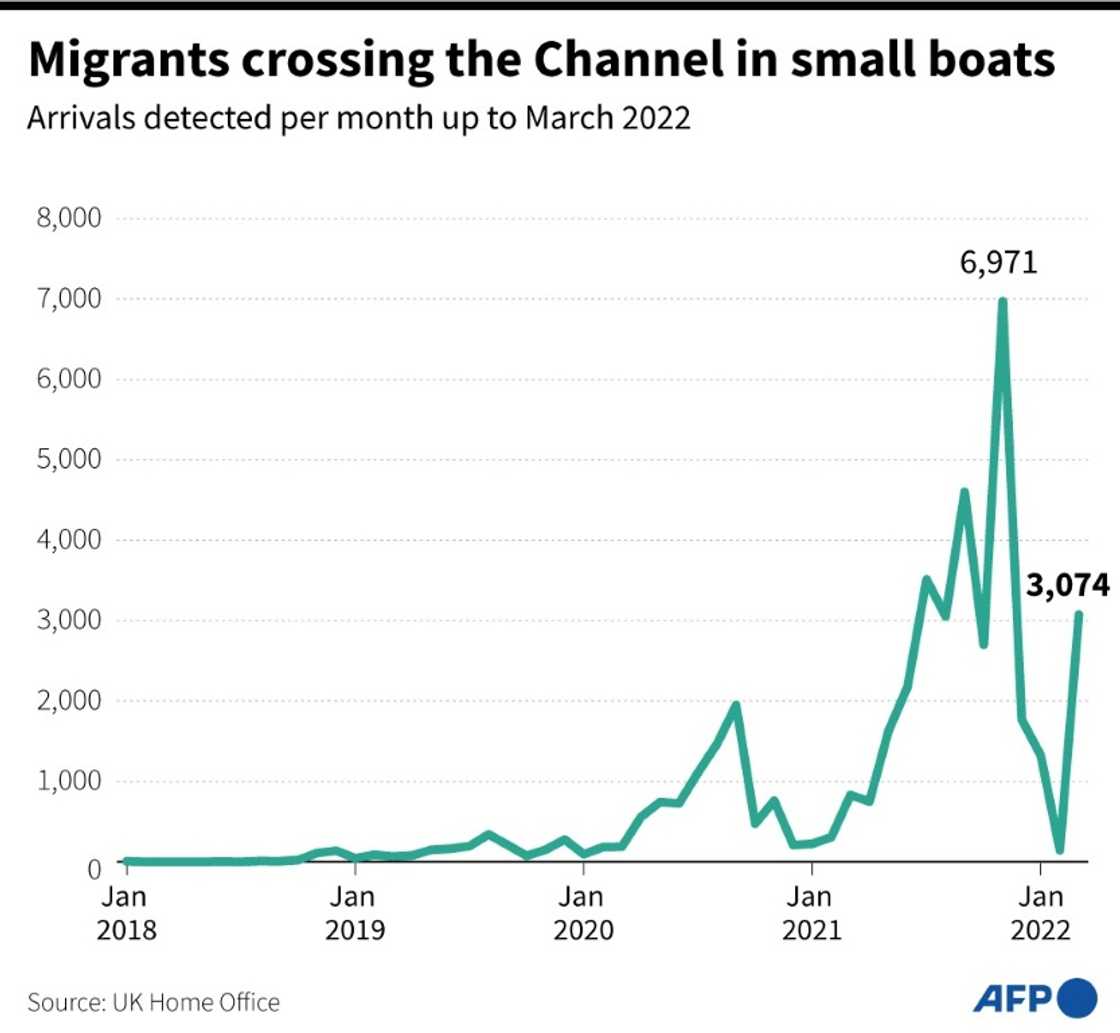Offshore detention survivors decry UK's Rwanda scheme

Source: AFP
PAY ATTENTION: Click “See First” under the “Following” tab to see YEN.com.gh News on your News Feed!
Britain's plan to send migrants and asylum seekers to Rwanda has left survivors of a similar scheme in Australia wondering why the "failed" policy that shattered their lives is being revived elsewhere.
For more than six years, Sudan-born refugee Abdul Aziz Muhamat was detained by Australian authorities in a small tropical island camp off Papua New Guinea's mainland, hidden from full legal and public oversight.
"The simplest way to describe daily life on Manus Island is there's no life," Muhamat explained.
"It's worse than a prison," he told AFP. "If you cry, no one will listen. If you shout, no one will come."
Muhamat's detention was part of Australia's "Pacific Solution", under which thousands of people who attempted to reach the country by boat were moved to offshore centres on Manus and the tiny nation of Nauru.
There, they were processed, given identification numbers and barred from ever permanently settling in Australia.
PAY ATTENTION: Enjoy reading our stories? Join YEN.com.gh's Telegram channel for more!
Many languished in the camps for years, in conditions described by rights groups as "hellish".
"They never could have got away with the conditions in those camps if they had been in Australia," said Nick McKim, a Greens senator who visited Manus five times before being refused entry.
"I have no hesitation in describing what happened in those camps as torture."
After vast taxpayer expense, 14 detainee deaths, a string of suicide attempts -- some by detainees as young as five -- and at least six referrals to the International Criminal Court, Australia's scheme has been scaled back piece-by-piece. As of last month there were about 100 people still on Nauru.
Now the concept is being given new life by Britain, which plans to send asylum seekers to the land-locked African nation of Rwanda.
The Australian solution
Manus-detainee-turned-author Behrouz Boochani has urged the British public to resist plans "to copy the deeply dehumanising asylum policies of Australia".

Source: AFP
But UK Prime Minister Boris Johnson -- who has taken advice from a series of prominent Australian political strategists -- has offered a familiar explanation for why it needs to go ahead: deterrence.
Like his Australian counterparts, Johnson has argued the policy will convince would-be migrants not to undertake perilous sea journeys on often rickety and overloaded vessels.
But Australian legal expert Madeline Gleeson of the Kaldor Centre said data shows "definitively" that offshore detention did not deter asylum seekers.
Gleeson said the UK scheme most closely mirrors Australia's policy between August 2012 and July 2013, when only some asylum seekers were sent to offshore camps.
"In that period, the number of people arriving by boat continued to rise to levels never before seen in Australia," she said.
Muhamat, who attempted three times to reach Australia by boat from Indonesia, losing five of his closest friends en route, is more direct.
The policy "achieved nothing", he said. "When you're running to save your life. You don't think about the tragedy you will encounter on your journey."
"This is really one of the points that people don't understand," he added. "What option do people have? They have only one option; they will continue risking their life."
Now living in Switzerland, Muhamat said the policy will simply condemn people to a "failed" system -- and tarnish Britain's status in the world.
"It will destroy the reputation of an entire country," he said. "The image of the UK will be replaced with an image of human misery."
PAY ATTENTION: check out news exactly for YOU ➡️ find "Recommended for you" block and enjoy!
Source: AFP




